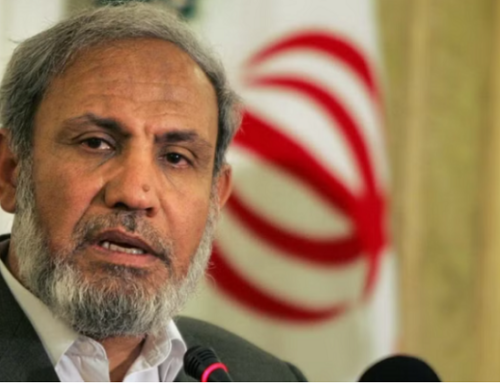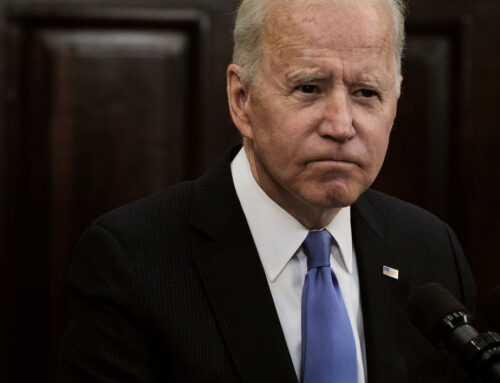Bad ideas, bitter fruit
27 January 2022
By Sharon James
Reprinted from The Christian Institute [in the U.K.]
Rob Henderson, a PhD student at Cambridge, has become known recently for his theory of ‘luxury beliefs’.
He remembers at age three trying to cling to his mother as two Los Angeles police officers dragged her away. He never saw her again. Sometimes as a child he would eat food foraged from bins. He was smoking weed by the age of nine. He could have ended up in jail.
Instead, he entered the Marines, where he learned to take responsibility and his gifts were nurtured. He advanced to further studies.
First at Yale and then at Cambridge, Rob perceived a ludicrous chasm between many of the ideas advanced by those in academia and the harsh realities of life for those outside that rarefied environment.
The elites can promote ideologies such as ‘free love’ or ‘defund the police’, but Rob had seen from first-hand experience that such ‘luxury beliefs’ are catastrophic when they impact those at the lowest income levels.
Bad ideas bear bitter fruit
Following our Creator’s instructions leads to human flourishing. Defying his good design results in disaster.
A series of lies have become embedded in the worldview of our culture. Like poison gas, these bad ideas cannot be seen, but they have deadly effects.
They have usually been promoted by elites who haven’t (at first) had to bear the greatest cost, but God is not mocked. Often those who persist in peddling lies are themselves, in time, ‘mugged by reality’.
‘There is no Creator God’
By the end of the 19th century, increased acceptance of evolutionary theory had contributed to a naturalistic worldview.
The logical deduction of evolution through random mutation and natural selection is that there is no absolute reason to protect human life above animal life.
Jacob Bronowski (1908–1974), presenter of the BBC series The Ascent of Man, insisted, ‘Man is a part of nature, in the same sense that a stone is, or a cactus, or a camel.’
This naturalistic worldview chipped away at the ethic of life based on the biblical idea that human life is to be afforded dignity because it is created in the image of God.
A culture of death gained ground
Provision of abortion is described as ‘healthcare’ for women. Countless unborn humans are disposed of in the process of artificial reproductive technologies (and some ‘contraceptive’ methods).
In many nations there is pressure to legalise ‘assisted suicide’, or euthanasia.
Some radical environmentalists argue that selective genocide may be needed in order to ‘preserve’ the planet.
‘There won’t be a judgment’
Denying the existence of our Creator means that we’re not answerable to our Creator: there won’t be a judgment and we can decide our own ethical standards. That cleared the way for the ‘sexual revolution’.
People such as Margaret Sanger (1879–1966) saw themselves as saviours, liberating people from the repression of traditional morality.
Founder of Planned Parenthood, and a supporter of the eugenics movement, Sanger devoted her life to the cause of sexual liberation. Her personal life was disastrous: failed marriages, neglected children, numerous affairs, attempts to cover up her complicity with the Nazi regime, and desperate attempts to find meaning via occult activities.
David Cooper (1931–1986) was one of many 20th century academics who insisted that the married family stifled personal independence and sexual freedom. While writing The Death of the Family (Penguin, 1971), he suffered a mental and physical breakdown. His brother and sister-in-law cared for him devotedly through the crisis. Yet Cooper continued to demand the abolition of the very institution to which he had turned in his hour of need.
In a fallen world, freedom without boundaries ends up in dystopia, not utopia.
Sexual ‘liberation’ has resulted in family breakdown, historically unprecedented global rates of fatherlessness, and communal weakening.
Children are at highest risk of harm when there is a revolving door of father-figures, or when family break-up means they are taken into state care.
The vast scale of human trafficking and modern-day slavery created by the global pornography industry creates immeasurable misery.
‘Truth claims are power grabs’
The current worldview denies the moral claims of our Creator, so everyone must do what is right in their own eyes.
Autonomy is the supreme value (from the Greek words auto for self, and nomos for law). Each person is to choose their own law; any refusal to affirm their moral choice is taken to mean that we do not respect them as human beings, or even that we hate them.
Many hesitate to express views about morality in public. ‘Criticism is violence’ is a mantra used to shut down debate on university campuses.
Students may be told that truth claims are just grabs for power, used by oppressor groups to keep minorities oppressed.
Those in ‘victim’ groups have access to ‘their’ truth, which the privileged are not allowed to comment on.
The victim’s individual experience can never be contradicted. What if you use reason, logic, and science to make a truth claim? Some claim that they are tools of oppression.
Professor Garth Cooper, a distinguished scientist in New Zealand, is currently under disciplinary investigation for objecting to the idea that schools should give as much weight to Māori mythology as to science in the classroom. Such an objection, it’s said, hurts the feelings of indigenous people.
According to this worldview, Christianity is viewed as the religion of the ‘majority’ culture, which has oppressed minority groups, so Christians share the collective guilt of the privileged class.
This may sound bizarre. Many would prefer to pretend it’s not happening.
But that’s just a vignette of the culture of identity politics that many today are having to navigate.
We have to understand what’s going on – and how we got here – if we are to equip our young people (and others) to be confident in the truth of God’s Word.
‘Words have no universal meaning’
By the end of the 19th century, revolutionaries were calling for equality. Not equality of opportunity, but absolute equality – equality of outcomes.
But given that people are all different, exactly equal outcomes can never be achieved if individual liberty is respected.
In societies influenced by the biblical worldview, inequalities have been mitigated by the Christian virtues of generosity, compassion, and social responsibility, and injustices have been addressed by a variety of reform movements.
Radical activists of the 20th century viewed reform movements as papering over the cracks of the corrupt edifice of a hopelessly unequal civilisation. It needed to be pulled down, not reformed.
The first generation of Marxists pushed for violent revolution. Later, some ‘critical thinkers’ took a different tack.
Italian revolutionary thinker Antonio Gramsci set out to trigger a slow-burning, long-term intellectual revolution which would undermine the presuppositions which propped up the establishment.
Institutions, values, family, church, morality, philanthropy, law, and government – even ‘common sense’ – were all viewed as means by which groups with power and privilege oppressed everyone else.
They could be toppled – if you could get people to doubt the concept of truth and the meaning of language. Persuade them that ‘freedom’ and ‘dignity’ are ‘just words’, and ‘words have no universal meaning’. Convince them that transcendent and religious ideals are a fraud exploited by the powerful elites (the ‘hegemony’) to sustain their own selfish interests. They are ‘false consciousness’.
The virus of radical doubt
A leader of the deconstructionist movement was French philosopher and author Michel Foucault (1926–1984). He celebrated transgressiveness, regarded Christian morality as toxic, and claimed that knowledge is merely a ploy used to keep the privileged in positions of power.
Foucault believed that authorities exert domination through the ‘gaze’, whether of the warder in the prison, or the medics in a hospital or mental asylum. When, however, he himself was dying of AIDS, he was cared for with compassion in the Salpêtrière, a hospital he had previously dismissed as a bourgeois authoritarian institution. Theory had been mugged by reality.
But the damage has been done. First universities, then all the institutions of Western society, have been invaded by the ‘virus’ of radical doubt. Critical theory has hijacked certainty about everything.
Truth claims are routinely shouted down by those who view the West as inherently evil (racist, patriarchal, heteronormative, capitalist).
Some want to destroy the very structures which have created freedom and prosperity: ‘Smash the patriarchy’ (aka the family), ‘Smash capitalism’ (aka wealth creation and private property), ‘Smash heteronormativity’ (aka biological reality), ‘Smash the police’ (aka law and order); ‘Smash down the statues’ (aka our collective memory and history).
‘The truth will set you free’
God is the Creator, and the ground of truth, justice, and morality. The only firm foundation for the defence of human rights is the truth that we are all created in God’s image.
The Bible affirms the essential unity of humanity (rather than absolute racial divisions): we all share the same first parents. We are all endowed with conscience. All must give account to our Maker. We are all guilty (guilt is not restricted to certain privileged groups); but forgiveness is offered to all in Christ.
God designed family and work. Sexual complementarity is his good design. The married family should not be undermined. Property should be protected, and work should be rewarded.
Our Sovereign God is in control of history. He has promised that the seasons will endure until the coming of his Son. He calls us to be responsible in stewardship of creation, but he has richly provided the resources of this earth to be developed for our blessing (Psalm 104).
In a fallen, sinful world, where oppression and suffering are realities, we are all called on to love our neighbour and do good to others.
God appoints rulers to uphold justice, and civil authorities should be supported. They will be answerable to God for how they fulfil their trust.
We need to learn from the past with gratitude and humility, but recognising that all human endeavours are affected by sin.
The division of the world into nation states offers protection from the threat of global tyranny.
Today in the West, many have been deceived by lies: all those foundational biblical truths are under attack. But defying God ends in disaster for individuals and societies (Psalm 12).
As it becomes ever more apparent that bad ideas bear bitter fruit, we are to be confident that living according to God’s truth leads to individual and societal flourishing.
Jesus Christ is the Way, the Truth, and the Life, and he promises to all who come to him: ‘Then you will know the truth, and the truth will set you free’ (John 8:32).
This article was first published by Evangelical Times.





![Credit Suisse borrows £44.5billion [53,724,850,000 in U.S. dollars] from Swiss central bank to stem crisis](https://acrookedpath.com/wp-content/uploads/2023/03/0A1909089-500x383.jpg)

Leave a Reply, please --- thank you.